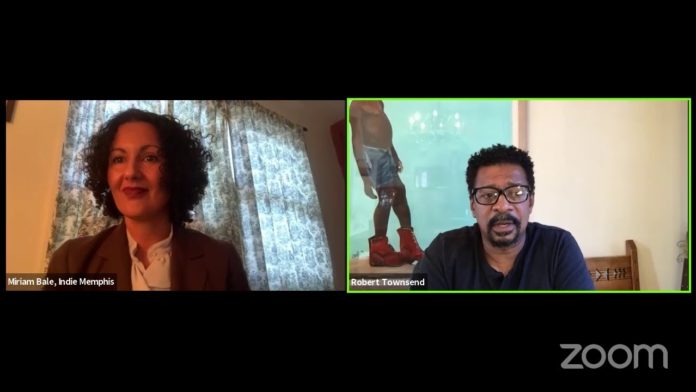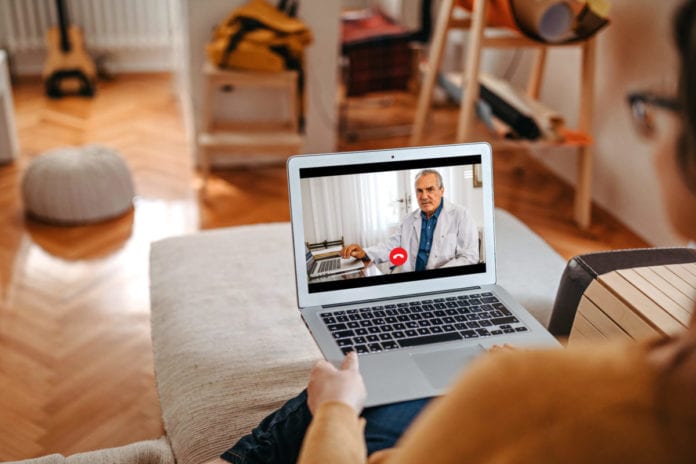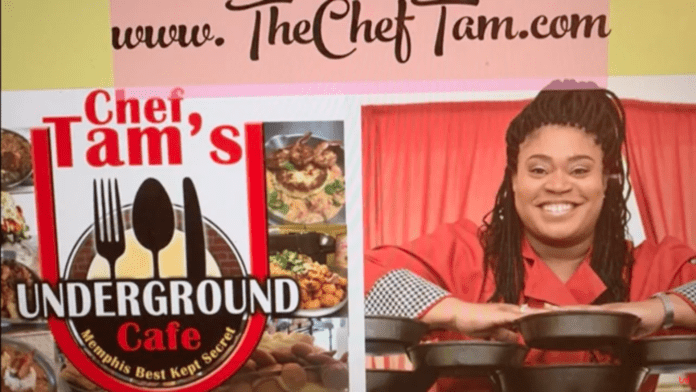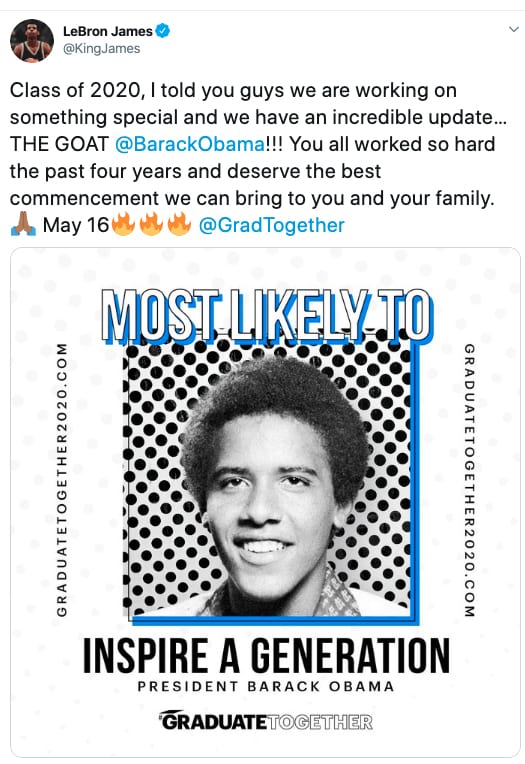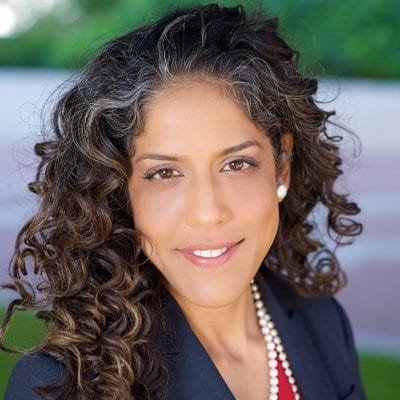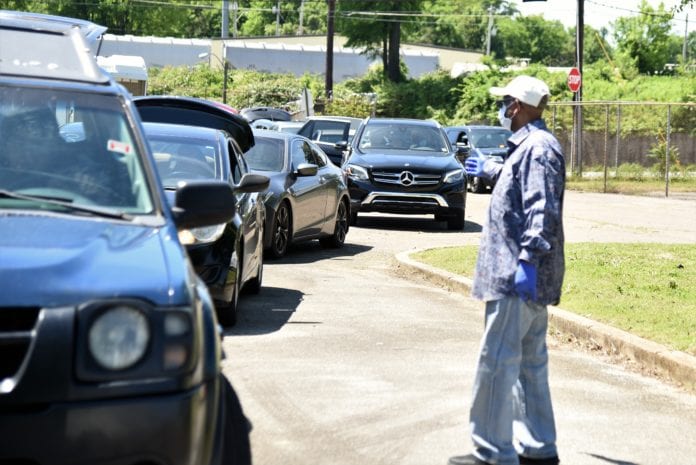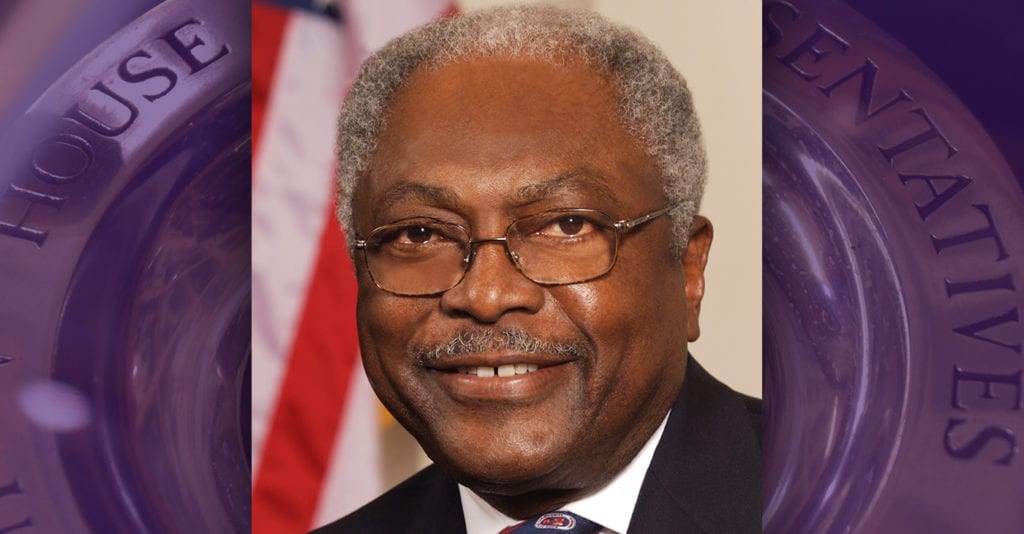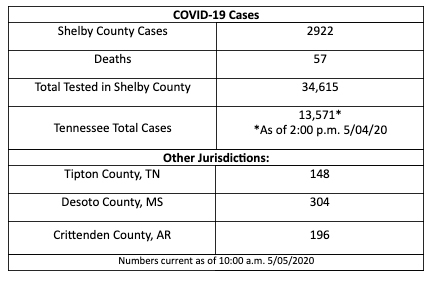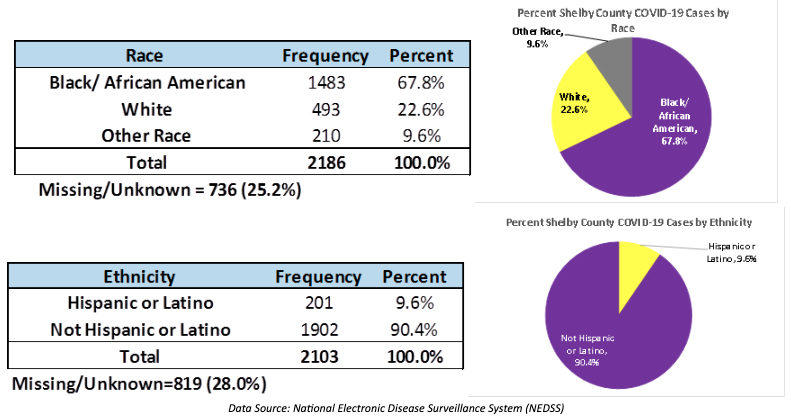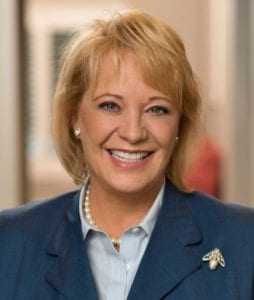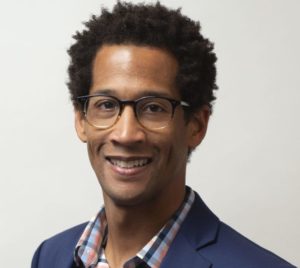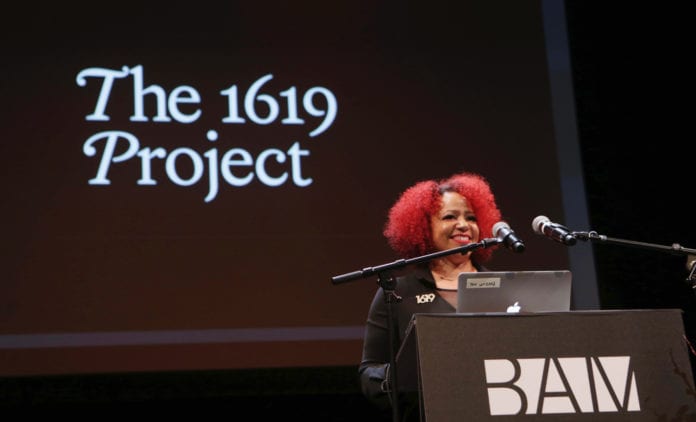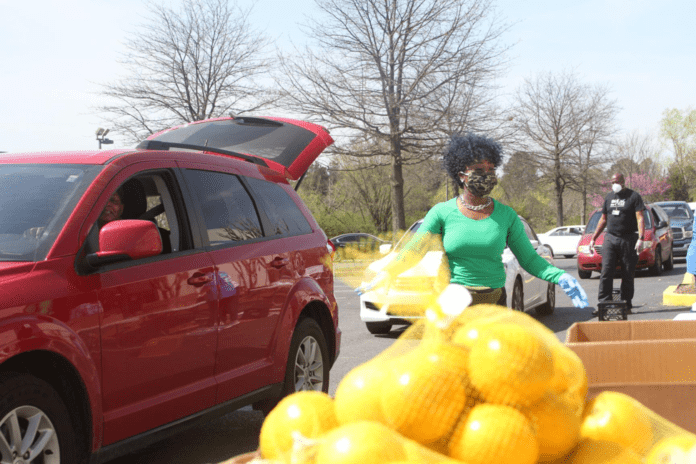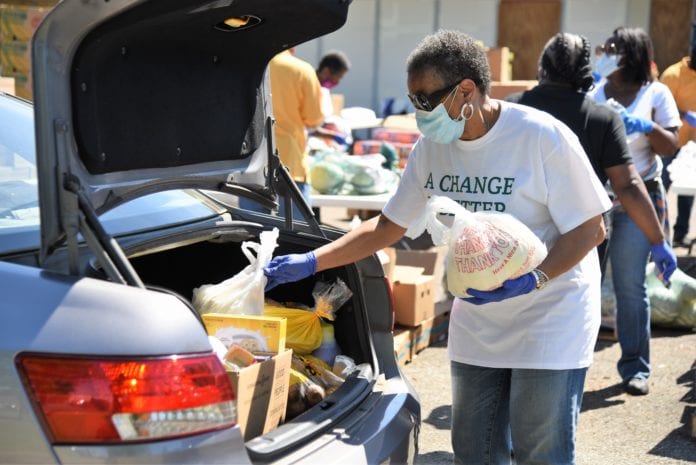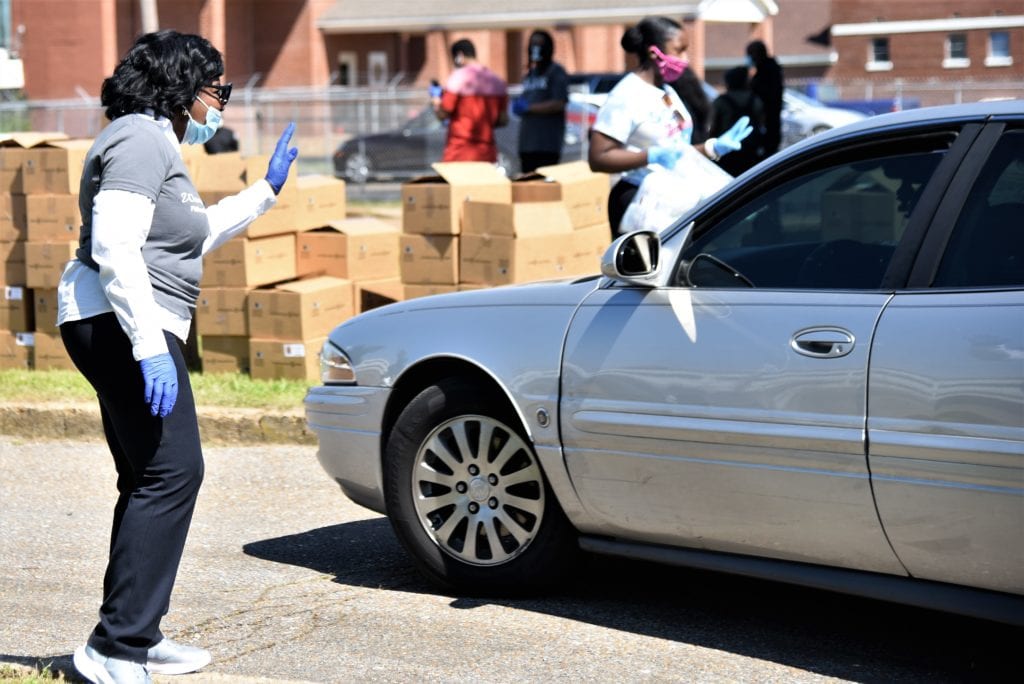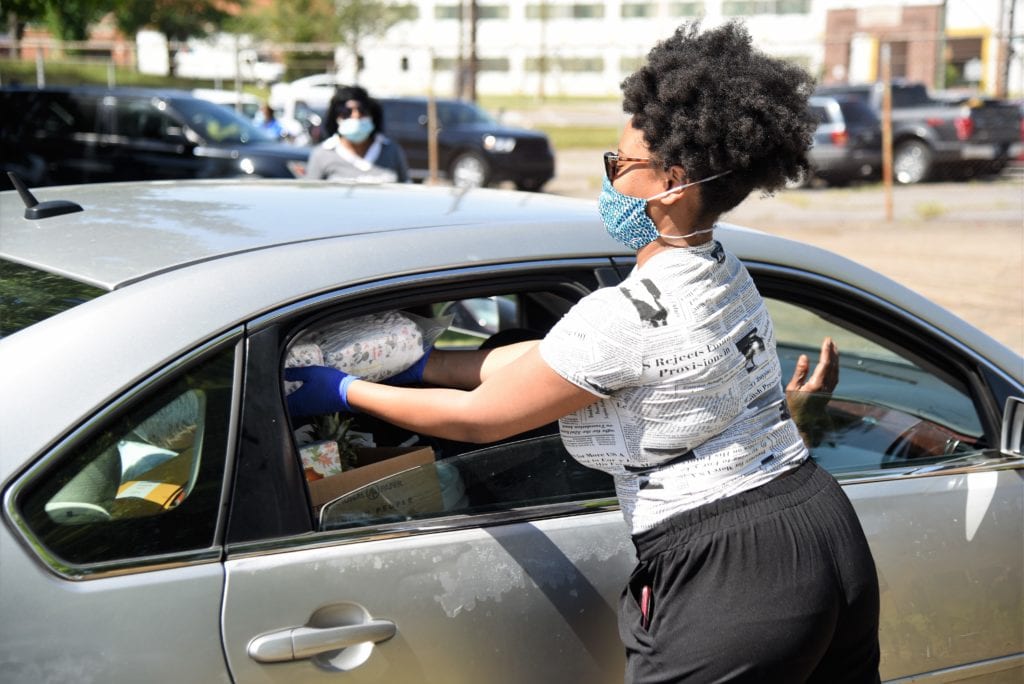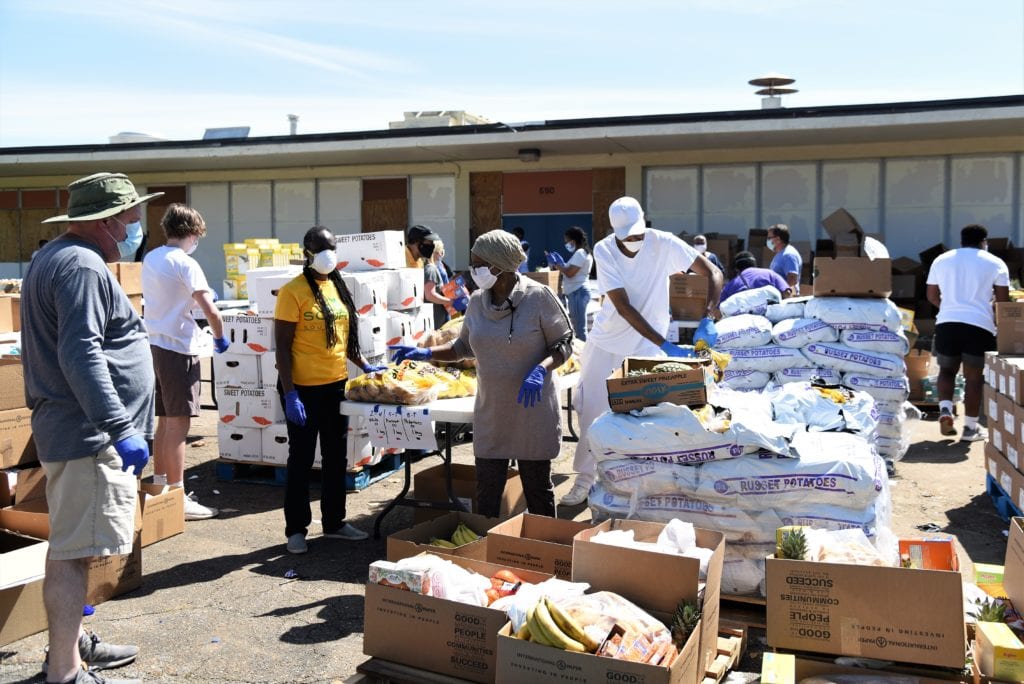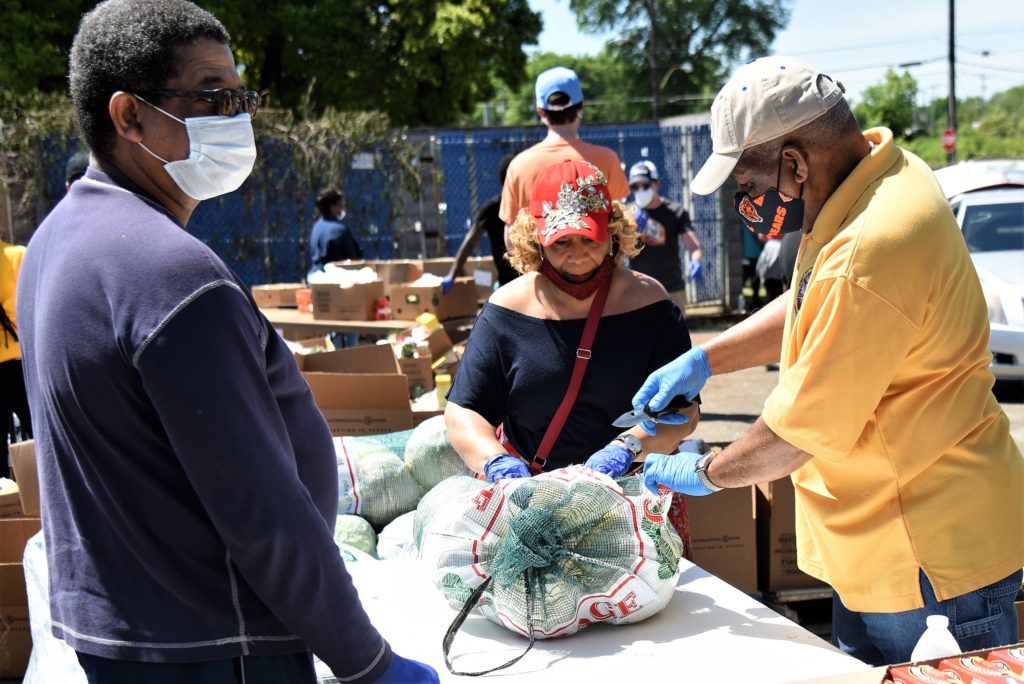From BCBSTUpdates.com
The rise of COVID-19 has caused Tennessee’s food banks to be overwhelmed by first-time visitors, while also seeing increased need among populations they already serve.
To help support these organizations as they assist Tennesseans in need, , providing more than 7 million meals.
“Every day, families count on food banks for help — and that’s especially true now,” said JD Hickey, M.D., CEO of BlueCross and chairman of the BlueCross Foundation. “Tennesseans can get through these challenging times by coming together, and we’re expanding our support for food banks statewide as another way to bring peace of mind to our neighbors.”
Here’s an inside look at some of the challenges our partner food banks are facing and how they’re putting our donations to work.
Mid-South Food Bank, Memphis
Donation: $750,000 = 1.7 million meals
and surrounding areas. In March, that nearly doubled, growing to 2.2 million.
According to president and CEO Cathy Pope, that rate of growth is unprecedented, and the funding from the BlueCross Foundation arrived at a critical time.
“We serve 300 local food pantries, soup kitchens and other agencies, and our job is to get food out to them,” Cathy says. “On March 12, Tennessee declared a state of emergency — the same day Shelby County closed its schools. Our volume has been growing dramatically ever since.”
The $750,000 donation has allowed the Mid-South Food Bank to:
- Place larger food orders
- Pay for leasing trucks, drivers and warehouse workers to manage expanded inventory
- Deploy food deliveries in new ways
“A lot of the pantries we supply are closing, so we’re doing more mobile pantries in partnership with the YMCA and Shelby County schools,” Cathy adds.
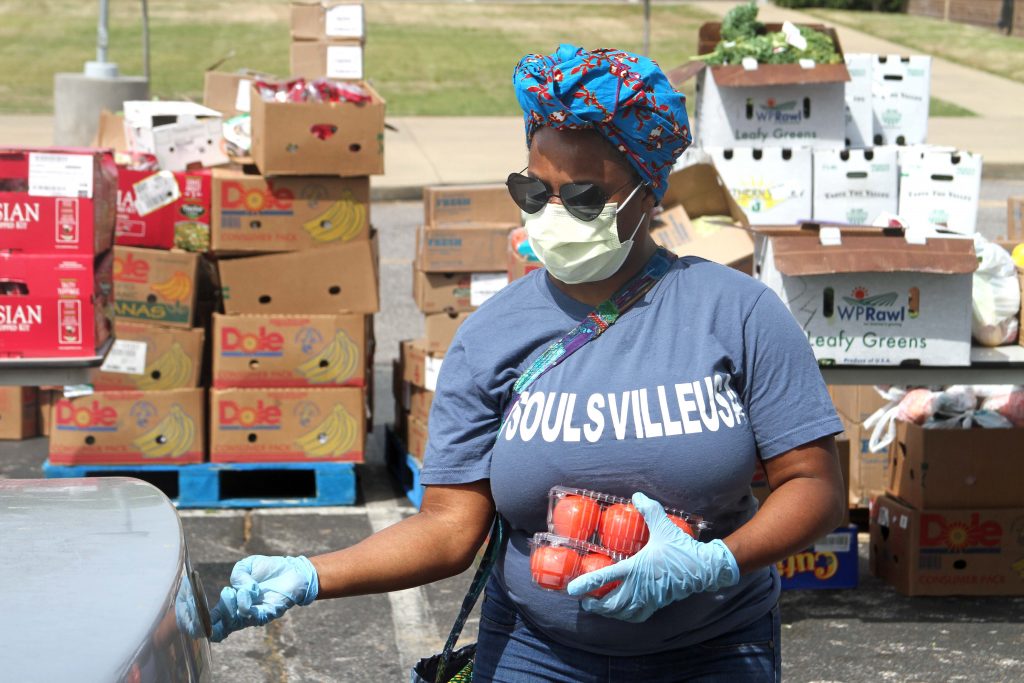
For distribution, trucks drive food into a neighborhood, and volunteers take boxes to recipients who remain in their cars so there is no contact. Each truckload can serve between 250 and 500 households per site, and efforts are focused on neighborhoods that were already experiencing difficulties with food access.
“We used to do two mobile pantries per day during the week,” Cathy says. “Now we’re up to six per day, including Saturdays.”
The BlueCross Foundation has also given $75,000 to support COVID-19 testing and treatment, or other health-related services, for uninsured residents in the Memphis area.
Regional Inter-Faith Association, Jackson
Donation: $250,000 = 19,600 meals
The Regional Inter-Faith Association, known as RIFA, works to address those needs through its food bank, community outreach programs and soup kitchen, among other efforts, says Lindsay Dawkins, marketing and events coordinator.
“With the onset of COVID-19, demand has been growing dramatically,” Lindsay explains. “In just two weeks we saw a huge increase in people coming to our facility for help. Most are not our usual clients, but people who’ve been laid off and are not sure when they’ll be working again.”
In addition to the increased demand, RIFA faced challenges when social distancing guidelines forced the closing of its soup kitchen, which fed around 225 people a day and served more than 518,000 meals in 2019.
The money from the BlueCross Foundation has allowed RIFA to buy more inventory for its food bank so it can have items on hand to distribute to the growing population in need.
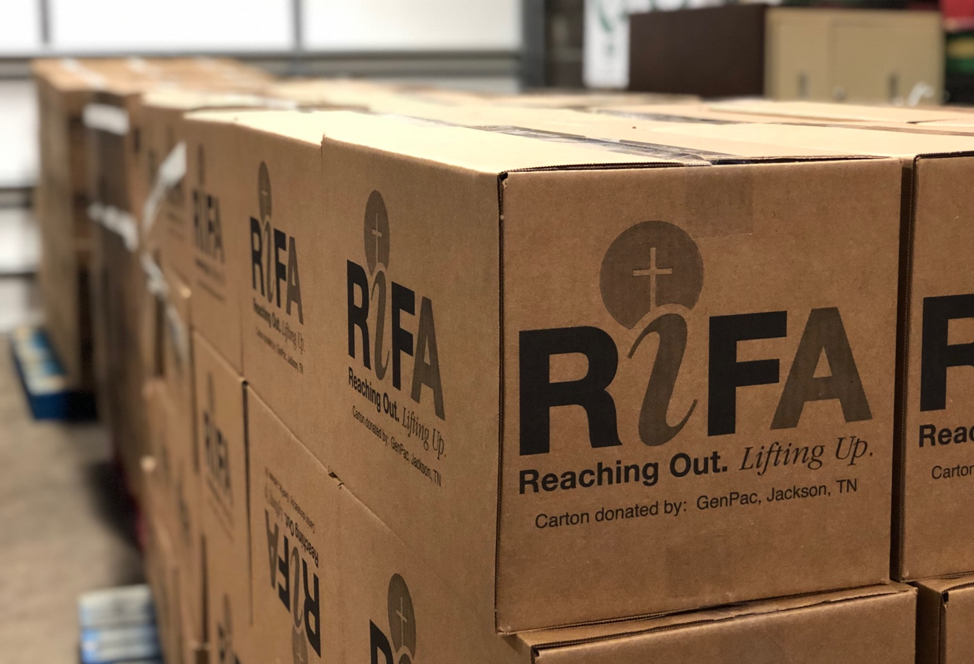
“This donation will help us make sure our warehouse is stocked up so that people who are coming through our doors, either for the first time or as a regular part of their life, get what they need,” Lindsay says.
“We never want to turn anyone away for lack of food, and this will show our clients that we are going to be here for them in the weeks and months ahead, that we are there for them in this time of crisis.”
Second Harvest Food Bank of Middle Tennessee, Nashville
Donation: $750,000 = 3 million meals
“With COVID-19, the demand for our services increases every day,” says Ally Parsons, senior director of marketing and communications at Second Harvest Food Bank of Middle Tennessee. “Many people are out of work and turning to a food bank for help for the first time.”
As schools and businesses remain closed, the need in Middle Tennessee continues to grow. At the same time, their food donations are decreasing.
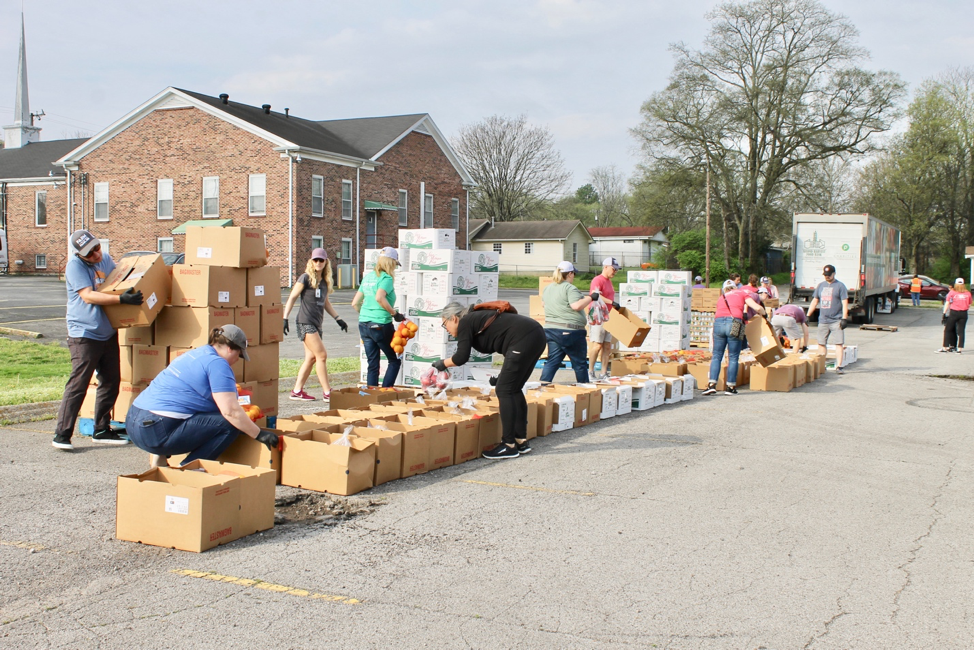
“We have amazing relationships with our grocery partners, but they are all struggling to keep food on their shelves, so that means there is a significant decrease in the donations we would typically receive from them,” Ally says.
“Also, individuals are donating less food as they stay in their homes or are simply unable to afford to donate at local grocery stores.”
The $750,000 from the BlueCross Foundation has allowed Second Harvest to:
- Purchase more food so it can serve the rising demand in its 46-county service area
- Expand the agency’s Emergency Food Box program, which provides food boxes with 2-3 days of staples to anyone who lives in Davidson or Wilson County
Second Harvest Food Bank of Northeast Tennessee, Kingsport
Donation: $500,000 = 560,400 meals
As a warehouse distributor of donated food, Second Harvest Food Bank of Northeast Tennessee is both a hub to pick up and distribute food to agency partners, as well as a mobile provider, says Rhonda Chafin, executive director. While the organization was already working to provide more mobile deliveries based on the needs of the population it serves, COVID-19 has accelerated those efforts.
“We knew people would be stuck at home and would not have access to food assistance,” Rhonda says. “Even though we knew people would be out of work, we didn’t realize how large those numbers would be. It has been very emotional talking to people and realizing the magnitude of the disaster we are going through now.”
The $500,000 donation from the BlueCross Foundation has allowed the food bank to ramp up its partner agency’s delivery and distribution system, so that its network of about 150 “mega pantries” can count on more frequent replenishing.
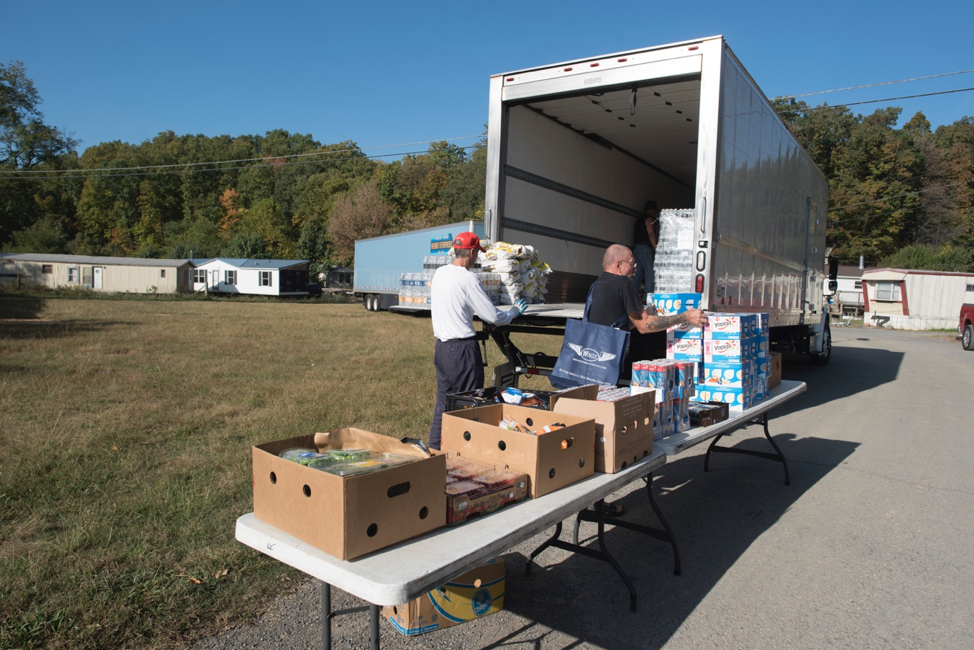
“ ,” Rhonda says.
“There are so many people — small business owners, waiters and waitresses, hairdressers, home health care workers — who lost their jobs from this. The BlueCross funding was an answered prayer; it could not have come at a better time.”
Second Harvest Food Bank of East Tennessee, Knoxville
Donation: $500,000 = 1.5 million meals
Before COVID-19, the Second Harvest Food Bank of East Tennessee supplied emergency food boxes from their warehouse to 70 people a month. Since the outbreak, that number has increased more than 600 percent.
“We’ve now provided 450 emergency food boxes directly from our warehouse,” says Rachael Ellis, Second Harvest director of development. “We are also building 500 to 1,000 emergency food boxes a day to send out to our agency partners for those in need.”
, especially by young families in need of assistance. That puts a strain on agency finances as more food needs to be purchased and more volunteers are needed to help pack boxes.
Rachael and her team are already hard at work putting the BlueCross Foundation funds to use.
“The incredibly generous $500,000 donation from BlueCross was the largest we have ever received specifically for food operations in our 37-year history,” she says. “It is providing 1.5 million meals to our East Tennessee neighbors in need.”
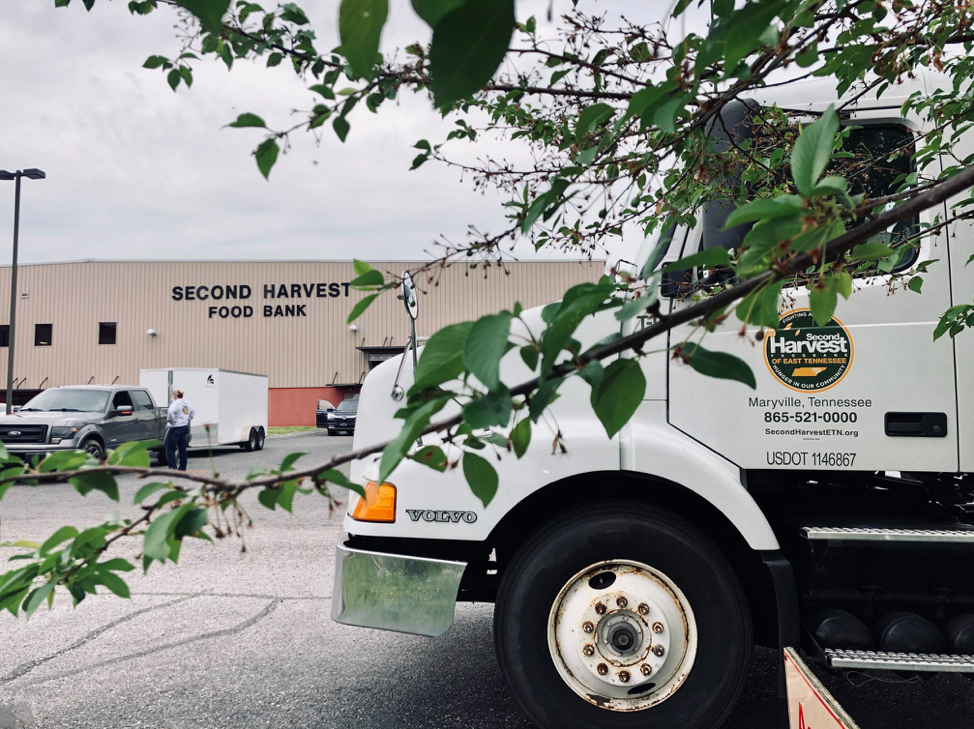
Chattanooga Area Food Bank, Chattanooga
Donation: $500,000 = 351,700 meals
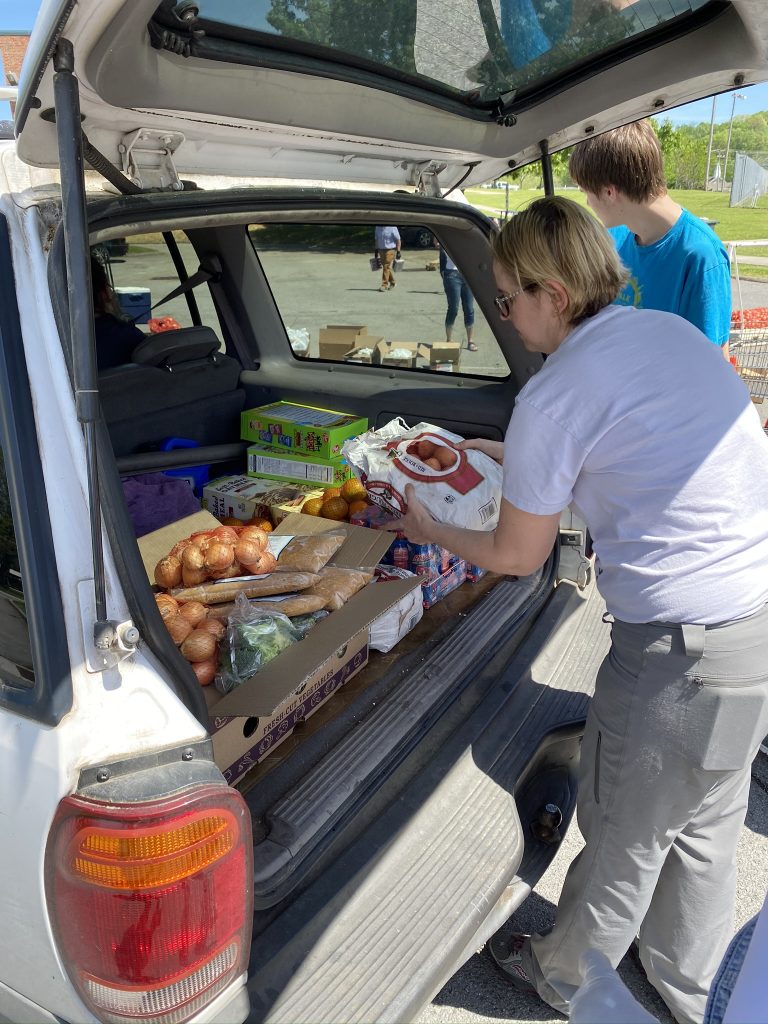
That adds up to roughly $400,000 in extra costs each month.
“We are having to purchase a lot of the food that normally would have been donated,” says Sophie Moore, director of community outreach and health care partnerships. “It’s a pretty scary prospect.”
The BlueCross Foundation funds make the future less uncertain, allowing for larger purchases and more frequent, innovative distribution efforts.
The donation has allowed the Chattanooga Area Food Bank to order prepacked boxes of nutritious, shelf-stable items and produce, so there are resources that can be quickly deployed to those in need with less volunteer labor, reducing the risk of COVID-19 transmission. The food bank is also planning 20 additional food distributions over the next three months as a result of the gift.
The donation is providing more than 350,000 meals, or 422,000 pounds of food, and will serve 20,000 families.
“BlueCross has been a wonderful friend and partner to us, but this generous gift at this time is truly an answer to our prayers,” Sophie says.
The BlueCross Foundation has also given $50,000 to support COVID-19 testing and treatment, or other health-related services, for uninsured residents in Hamilton County.
How you can help
While more Tennesseans are facing food insecurity as a result of COVID-19, many others are looking for ways to make a difference. Community members who want to help can find and donate to their local food bank or at FeedingAmerica.org.



